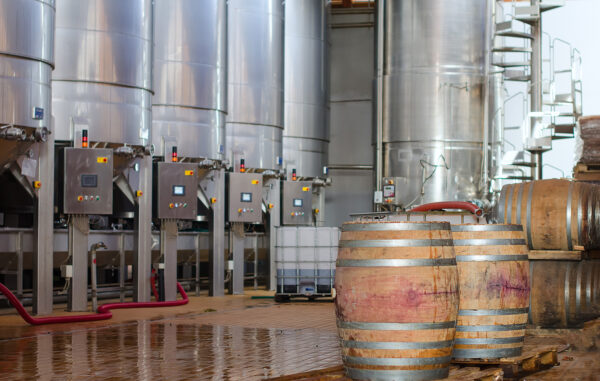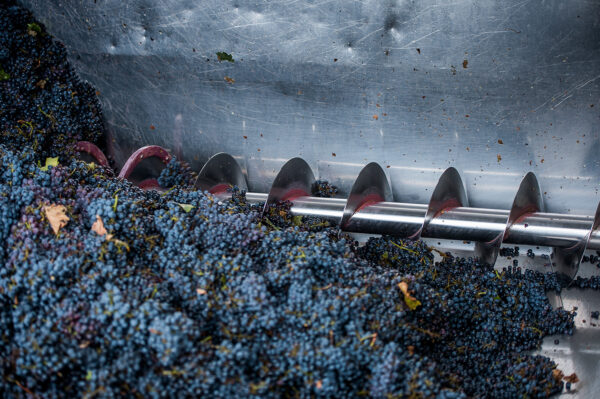Introduction
Wineries and beverage businesses face unique challenges when it comes to commercial contracts. From sourcing grapes to distributing wine or other beverages, beverage businesses must navigate complex supply chains, regulatory requirements, and shifting market demands. To succeed, it’s essential to have strong commercial contracts in place.
In this article, we’ll explore the essential elements of commercial contracts and the benefits they offer, as well as some special considerations for wineries and beverage businesses.
The Importance of Commercial Agreements in the Beverage Industry
For all businesses, commercial contracts represent crucial tools for memorializing important relationships. Commercial contracts, such as distribution agreements, equipment leases and purchase/supply agreements, regulate business relationships between individuals or businesses, where the parties agree to perform certain actions and/or refrain from doing others. At their core, commercial contracts allow parties to:
- express the fundamental terms of their business agreement;
- realize the benefits they bargained for; and
- allocate the risks arising from the relationship.
The “Three-Tier System” of Alcohol Regulation
The “three-tier system” of alcohol regulation in the United States adds importance and complexity to the need for commercial agreements in the wine industry. Each “tier”, the manufacturers (e.g. winegrowers), wholesalers (e.g. distribution), and retailers, must remain completely separate from the others and establish their relationships through written agreements. And, California’s Alcoholic Beverage Control Act (Business &. Professions Code § 23000 et seq.; the “ABC Act”) imposes certain restrictions and requirements on contracts within the wine supply chain. Even California wine industry participants outside of the scope of the ABC Act, such as vineyards without any winemaking capabilities, should remain vigilant about commercial contracts, to protect their interests in business transactions.
Foundations of Commercial Contracts
Well-drafted commercial contracts contain certain key building blocks –
- Representations and warranties. Representations are statements of fact given by one party to induce another party to enter into the contract or take another action. Warranties are promises that the assertion of fact is true, supported by an implied promise of indemnity if the assertion is false.
- Covenants. Promises to take or refrain from taking certain actions, such as a promise to perform services or deliver goods.
- Rights. The benefits of the promise to act or refrain from acting, such as a right to receive payment or delivery of goods.
- Conditions. Facts that must be true or an event that must have occurred before a party’s obligations or rights under the agreement are triggered.
- Mutual Statements of fact. Declarations and informational statements (such as a definition or choice of law provision) that does not operate independently, but clarifies, expands or limits the meaning of the other terms in the contract.
These building blocks form the basis for nearly every type of contract provision, such as scope of services, payment obligations, territory, term, change in ownership and transfer rights, termination rights, terms of sale, commercially reasonable sales goals, post-termination provisions, intellectual property ownership and advertising issues, dispute resolution, and other key rights and duties of the parties.
Each of these provisions can greatly impact how parties perform and benefit from their business relationship. Not only do these agreements, and each term within the agreements, inform parties how to engage with each other and perform their respective responsibilities, but they also provide important protections in case relationships do not work out as intended. For example, parties may reference their commercial contracts to calculate payment and delivery timelines. And, if any of those timelines are not met, the contracts would inform procedures for addressing a breach. A carefully drafted dispute resolution provision can ensure that a non-breaching party can enforce its rights quickly and efficiently, so that it does not suffer too much from the contract violation. A strong contract can ensure each party performs in the ways the other party expects, or it can help the victim of a contract breach protect its rights.
Benefits of Commercial Contracts for Wineries and Beverage Businesses
Clarity and Predictability
Commercial contracts help establish clear expectations and provide a framework for future business dealings. This can help reduce the risk of disputes and promote more predictable and profitable business relationships. By clearly outlining payment terms, commercial contracts can help improve cash flow, as both parties know when payments are due and can plan their finances accordingly.
Protection of Intellectual Property
Strong commercial contracts can help wineries and beverage businesses protect their intellectual property, including trademarks, copyrights and trade secrets, which are crucial for building and maintaining a successful brand. Beverage brands also rely on confidentiality provisions in contracts to protect their pricing and marketing strategies.
Compliance with Regulations
Contracts can help beverage businesses ensure compliance with regulations, which can minimize the risk of fines, legal penalties, and reputational harm.
Better Negotiation Power
Commercial contracts give wineries and alcoholic beverage businesses the leverage they need to negotiate better terms and secure more favorable deals.
Special Considerations for Wineries and Other Alcoholic Beverage Businesses
Whenever entering into a commercial transaction, wineries and other regulated beverage businesses must account for the complex web of laws and regulations imposed by California and the federal government.
Federal and State “Tied-House“ Laws
Crucially, wineries must not run afoul of federal and state “tied-house“ laws, meant to prohibit winegrowers, as well as brewers, distillers, and other alcoholic beverage suppliers, from exerting undue influence over retailers. These laws take many forms, each significantly impacting the wine supply chain and dictating how commercial contracts can be structured. For example, the ABC Act states that it is illegal for a winegrower to give “anything of value” to a retailer (or wholesaler), to give rebates or kickbacks to retailers, to pay a retailer for advertising in the retail outlet, and to give a retailer any free goods, with some exceptions (see California Business and Professions Code § 25500).
Laws Prohibiting Consignment Sales of Alcoholic Beverages
Closely related to this, both California and federal law prohibit consignment sales of alcoholic beverages. In fact, ABC Act § 25503 specifically prohibits consignment sales by manufacturers, winegrowers, manufacturer’s agents, California winegrower’s agents, rectifiers, distillers, bottlers, importers, or wholesalers.
These and other applicable laws and regulations contain significant complexity, and they are often subject to interpretation. For example, regulators might consider selling products on extended terms to be prohibited consignment sales (see the recent TTB Industry Circular). Because these laws govern how supply chain participants can transact with each other, wine businesses should devote significant time and attention to their commercial contracts to avoid violating these legal requirements.
Conclusion: Work with an Attorney to Draft and Negotiate Compliant Contracts
Commercial contracts are important legal agreements that can significantly affect wineries and beverage businesses. Non-compliant and carelessly structured commercial contracts not only create financial risks, but they could jeopardize the beverage license of a business and subject it to the risk of enforcement by applicable regulatory agencies. Wineries and beverage businesses should work with a legal professional to draft and review commercial contracts. A beverage attorney can help ensure the contract is legally binding and enforceable while providing valuable advice on negotiations.
The beverage attorneys at Rogoway Law have helped many clients negotiate commercial agreements that implicate complex legal issues and regulations. For more information or assistance with commercial contracts for wineries and other beverage companies, please contact us for a complimentary initial consultation.


